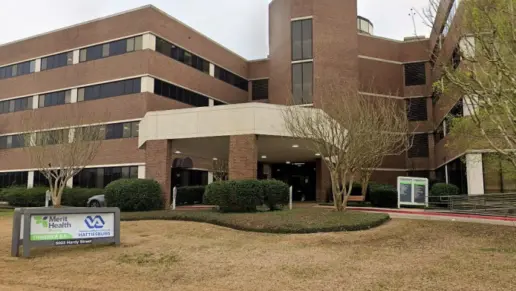I was in building 81 in 2015. Majority of staff was very helpful and understanding. I knew it wasn’t going to be great but I obeyed the rules and worked the program. I have been sober for four years and attend meetings weekly. I’m very grateful to God.
About Mississippi State Hospital – Chemical Dependency
Mississippi State Hospital – Chemical Dependency is a public rehab located in Whitfield, Mississippi that specializes in the treatment of alcoholism, dual diagnosis, opioid addiction, and substance abuse. They also provide psychiatric services to individuals struggling with mental health disorders.
Mississippi State Hospital – Chemical Dependency offers medically supervised detox, inpatient treatment , medication assisted treatment, and mental health treatment services.
Medically assisted detox is available at Mississippi State Hospital Chemical Dependency Center. Medically assisted detox helps reduce the withdrawal symptoms and creates a safer detox process.
The Inpatient Program at Mississippi State Hospital allows for mental health therapy once the detoxification process has taken place. Staying on site allows for 24/7 supervision and care. Meals are provided, along with a structured routine that involves rehabilitation on a short-term basis. The individual needs of each person will be determined at the initial assessment and a plan will be drawn up for the proper treatment protocol.
Clinical therapies in the form of individual and group therapy are offered. Mississippi State Hospital Chemical Dependency programming focuses on CBT, DBT, and ECT. These stand for cognitive behavioral therapy, dialectical therapy, and electroconvulsive therapy. Integrated dual diagnosis treatment and psychotropic medication is also offered for those in need of these services.
MAT is defined as the use of FDA-approved medication in combination with counseling or behavioral therapies. Medications like Suboxone and methadone are proven as effective treatments for opioid use disorder.
Co-occurring addiction treatment is for individuals who are struggling with two or more conditions at the same time. This often manifests as an addiction to drugs or alcohol while also struggling with anxiety, depression, or a psychiatric condition. By treating the addiction and the mental health condition simultaneously, there is a better chance for long-term recovery to take place.
Latest Reviews
Rehab Score
Gallery

Location
Other Forms of Payment
Private insurance refers to any kind of healthcare coverage that isn't from the state or federal government. This includes individual and family plans offered by an employer or purchased from the Insurance Marketplace. Every plan will have different requirements and out of pocket costs so be sure to get the full details before you start treatment.
Self-pay involves paying for treatment out of your own pocket. You can use savings or credit, get a personal loan, or receive help from family and friends to fund your treatment. If you don't have insurance or your insurance plan doesn't cover a specific program, self-pay can help ensure you still get the care you need.
Financial aid can take many forms. Centers may have grants or scholarships available to clients who meet eligibility requirements. Programs that receive SAMHSA grants may have financial aid available for those who need treatment as well. Grants and scholarships can help you pai for treatment without having to repay.
Sliding scale payments are based on a client's income and family size. The goal is to make treatment affordable to everyone. By taking these factors into account, addiction recovery care providers help ensure that your treatment does not become a financial burden to you or your family, eliminating one barrier to care.
Medicare is a federal program that provides health insurance for those 65 and older. It also serves people under 65 with chronic and disabling health challenges. To use Medicare for addiction treatment you need to find a program that accepts Medicare and is in network with your plan. Out of pocket costs and preauthorization requirements vary, so always check with your provider.
Military members, veterans, and eligible dependents have access to specific insurance programs that help them get the care they need. TRICARE and VA insurance can help you access low cost or no cost addiction and mental health treatment. Programs that accept military insurance often have targeted treatment focused on the unique challenges military members, veterans, and their families face.
Medicaid is a state based program that helps lower-income individuals and families pay for healthcare. Medicaid covers addiction treatment so those enrolled can use their coverage to pay for rehab. When a program accepts Medicaid the client often pays very little or nothing out of their own pocket.
Addiction Treatments
Levels of Care
Treatments
The goal of treatment for alcoholism is abstinence. Those with poor social support, poor motivation, or psychiatric disorders tend to relapse within a few years of treatment. For these people, success is measured by longer periods of abstinence, reduced use of alcohol, better health, and improved social functioning. Recovery and Maintenance are usually based on 12 step programs and AA meetings.
For those seeking help with addiction, a drug rehab in Mississippi offers the necessary care to achieve long-term recovery. Options include inpatient, residential, partial hospitalization, intensive outpatient, and long-term drug rehab in Mississippi.
Many of those suffering from addiction also suffer from mental or emotional illnesses like schizophrenia, bipolar disorder, depression, or anxiety disorders. Rehab and other substance abuse facilities treating those with a dual diagnosis or co-occurring disorder administer psychiatric treatment to address the person's mental health issue in addition to drug and alcohol rehabilitation.
Opioid rehabs specialize in supporting those recovering from opioid addiction. They treat those suffering from addiction to illegal opioids like heroin, as well as prescription drugs like oxycodone. These centers typically combine both physical as well as mental and emotional support to help stop addiction. Physical support often includes medical detox and subsequent medical support (including medication), and mental support includes in-depth therapy to address the underlying causes of addiction.
Substance rehabs focus on helping individuals recover from substance abuse, including alcohol and drug addiction (both illegal and prescription drugs). They often include the opportunity to engage in both individual as well as group therapy.
Programs



Clinical Services
If you participate in cognitive behavioral therapy in Mississippi, you can expect to receive homework exercises that allow you to practice the skills you discuss during your sessions. You'll learn how to develop coping skills and change your thinking and behavior so you can break free from addiction.
Treatment that includes dialectical behavior therapy in Mississippi gives you specific tools for managing challenging situations. You'll learn how to identify and change unhealthy thought patterns. You'll also attend group training sessions where you can start applying the skills you're learning in treatment.
Evidence based therapies offered in group therapy settings in Mississippi ensure that you are accountable to your peers. This encourages everyone to stay committed to their recovery and fosters a sense of community with other participants. You learn essential coping skills that help you navigate challenges within the community and achieve sustainable recovery.
Counselors who apply motivational interviewing take on the roles of listening and reflecting. Their goal is to facilitate conversation about change and commitment to change. They offer support and seek to empower the client to make changes in their life.
You can start using nicotine replacement therapy as soon as you quit using tobacco. These products, such as nicotine gum and nicotine patches, treat your physical dependence on nicotine. To address any psychological dependence, counseling and support groups can be good resources.
Contact Information
3550 Highway 468 West
Buildings 81 and 84
Whitfield, MS 39193


